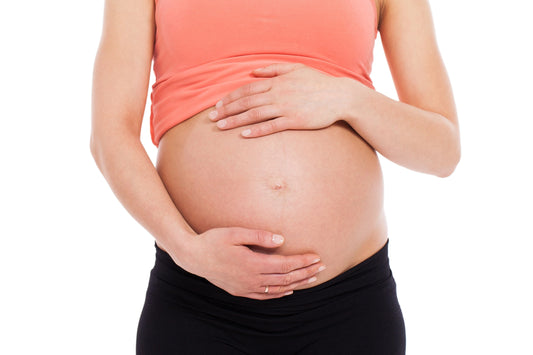When do pregnancy symptoms appear and what are they? Is it possible to be pregnant without any symptoms?
When we suspect a possible pregnancy, we are usually full of doubts, especially as, very often, the symptoms we experience are similar to those of our period coming.
Let’s shed some light on the signs that may indeed indicate the beginning of a pregnancy and what are the most common first trimester symptoms.
First pregnancy symptoms: when do they appear?
Every woman is different: some may experience early signs of pregnancy before missed period, others may not recognise or experience any symptoms during the first few weeks of pregnancy.
There is no precise timing for when pregnancy symptoms appear, it varies from woman to woman.
However, a missed period is the strongest alarm bell of pregnancy, although some women can sense the changes occurring within their body at a much earlier stage.
During the first three months, a woman’s body undergoes an immense transformation, to facilitate the implantation of the egg and the nesting of the embryo.
Especially during the early phase, pregnancy hormones (HCG, oestrogen, and progesterone) cause emotional and physical changes, such as sickness, headaches, and mood swings.
First pregnancy signs
If you are trying to conceive, you’ll inevitably be more sensitive to the signs of pregnancy, as well as, implantation symptoms, shortly before your period is due.
In fact, symptoms of pregnancy can be very similar to normal pre-menstrual cycle symptoms, which varies from woman to woman.
Here’s a list of the possible first week pregnancy symptoms:
- missed period
- mild cramping
- increased breast volume
- tender, tingling breasts and nipples
- clear or white discharge
- slight spotting
- nausea, morning sickness and changes in appetite
- fatigue
- frequent urination
- constipation
- mood swings
- back pain
- headaches
- heartburn
Amenorrhoea (absence of menstruation)
The absence of menstruation is the primary indicator of pregnancy: if your period is late, it’s time to take a pregnancy test.
However, not all women have a regular menstrual cycle, and late periods can also be caused by several other factors, such as severe stress.
Sometimes a pregnant woman may experience light spotting and confuse it with the arrival of her period.
Increased vaginal discharge
Some women may experience clear pregnancy discharge, which is a result of the hormone oestrogen which causes an increase in blood flow to the genital area and affects the mucous glands.
Pregnancy nausea and altered taste
Pregnancy sickness is one of the first and most common symptoms. Vomiting in pregnancy usually begins between the fifth and eighth week and disappears at the start of the second trimester (with the exception of a few cases of severe morning sickness). A pregnant woman also becomes much more sensitive to smells.
Perception of taste also changes; you may find yourself turning your nose up at foods which you loved the day before, just as you may crave other foods which you were never really keen on.
Drowsiness and tiredness pregnancy
During the first few weeks, pregnancy exhaustion sets in, even when just carrying out your usual daily activities.
You may feel sleepy, so much so that you find yourself dozing off in abnormal situations, such as at work.
Your body is taking time to gain all the rest and sleep it needs to adjust to the huge transformation going on inside of you.
Mood swings pregnancy
Mood swings during pregnancy are especially frequent during the first and third trimester, you’ll suddenly swing from feeling sad for no reason and crying over everything to being full of joy. Quite a rollercoaster ride!
Does your belly ache when you’re pregnant?
Is tummy pain during pregnancy normal? Yes, pain in your lower abdomen or cramps are quite common and are usually not a cause of concern, except if you are also experiencing:
- vaginal bleeding
- severe pain
They are initially linked to implantation of the embryo and then to the major changes both your uterus and internal organs are undergoing.
Pregnancy symptoms or my period?
Initial pregnancy symptoms are very similar to pre-menstrual symptoms, such as belly ache, increased breast tenderness, clear or white discharge, mood swings, backache, headache, etc.
Therefore, it’s not easy to interpret these signs correctly if they’re the same as we experience when our period is due. However, it is a different matter if new symptoms appear or if we usually don’t suffer from pre-menstrual symptoms.
That’s why it’s always a good idea not to overthink or question every single tiny symptom we experience until we actually skip a period, at which point we should take a pregnancy test as a missed period is the strongest indicator of a possible pregnancy.
The symptoms described above are for information purposes only and under no circumstances substitute a diagnosis or prescription of treatment by a doctor or healthcare professional. We recommend that you always consult your GP, doctor and/or healthcare professional specialist.





